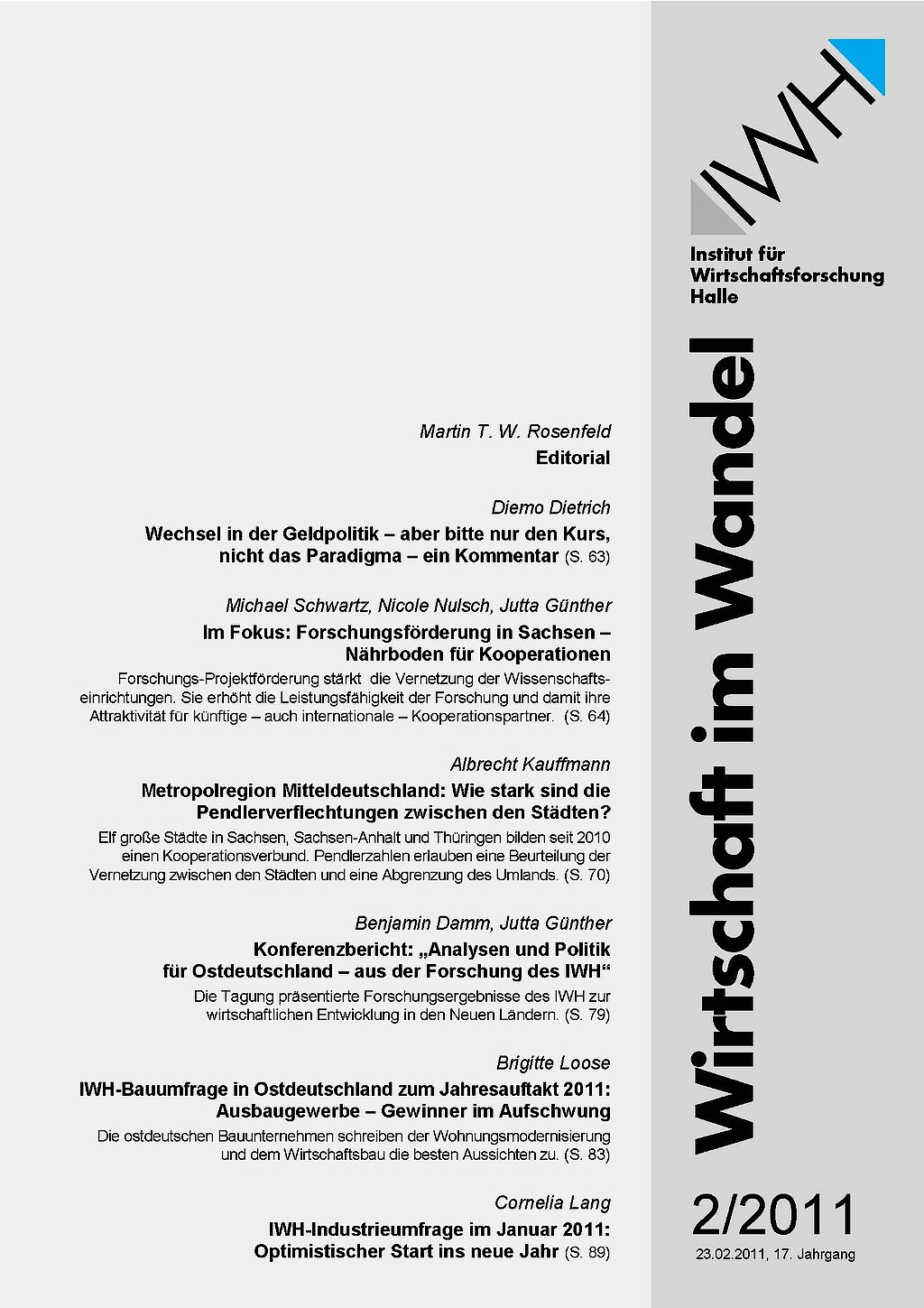
Construction Industry Survey 2011: Modernization Boosts Construction Upswing
Das Baugewerbe, das die Finanz- und Wirtschaftskrise vergleichsweise glimpflich überstanden hat, profitiert zusehends vom gesamtwirtschaftlichen Aufschwung. Im Jahr 2010 haben knapp 40% der ostdeutschen Bauunternehmen ihre Produktion ausweiten können; reichlich ein Viertel sogar um mehr als 5%. Knapp einem Viertel gelang es, sie stabil zu halten. Die vor Jahresfrist geäußerten Erwartungen der Unternehmen über die Dynamik der Bauleistungen sind damit weit übertroffen worden. Ursprünglich war nur ein Viertel von Umsatzzuwächsen und ein Drittel von gleichbleibenden Umsätzen ausgegangen. Am kräftigsten wurden die Aussichten im Ausbaugewerbe überschritten. Statt wie von 26% der Unternehmen anvisiert, berichten 46% von höheren Umsätzen im Vergleich zum Krisenjahr 2009. Hier zeigt sich auch, dass die Baumaßnahmen aus den Konjunkturpaketen der Bundesregierung mit der starken Fokussierung auf energetische Sanierung zu einem großen Teil dem Ausbaubereich zugutegekommen sind. Zugleich profitierte der Ausbau von der Erholung im Wohnungsbau, die sich in Ostdeutschland bei schrumpfender Bevölkerung stärker in werterhöhenden Baumaßnahmen widerspiegelt. Im Ergebnis erwiesen sich die Ertragsverhältnisse unter allen Sparten nur im Ausbaugewerbe als überwiegend positiv.




